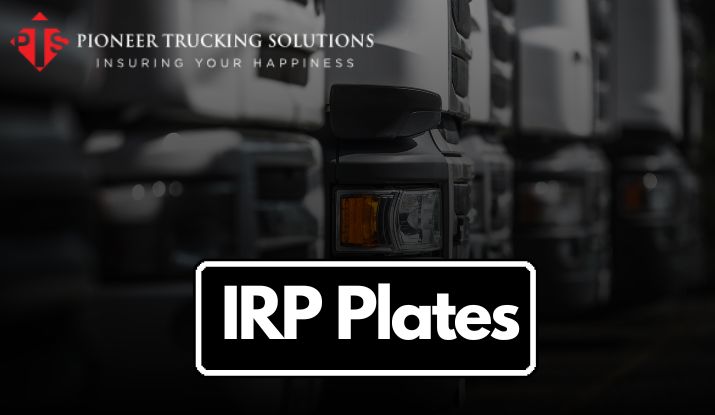The two crucial aspects that often confuse newcomers are IRP plates and IFTA registration.
Are you an interstate trucker? then you must apply for IRP plates and IFTA registrations. However, these two are different from each other but quite similar.
At Pioneer Trucking Solutions we offer services for International Registration Plan for trucking and IFTA Registrations. Our services support you with documents and other processes involved in these two crucial aspects
While both are essential for interstate operations they serve distinct purposes and involve separate processes. Understanding two of these aspects differences is fundamental for compliance and efficient fleet management. Below in this article, we discussed both registration processes helping you to understand their major differences.
What are IRP Plates?
IRP stands for International Registration Plan it is a a cooperative agreement between the states and countries aimed at facilitating the registration and operation of commercial vehicles across borders.
When you buy a commercial vehicle IRP is an option for registering that allows operation under a single registration plate issued by the state government. The government made it necessary for commercial vehicles with the motive to distribute registration fees fairly among states and provinces based on the proportion of travel in each jurisdiction.
Key Points About IRP Plates:
- Multi-Jurisdictional Authorization: The major benefit commercial truck owner gets from IRP is that they get the authority to operate in different jurisdictions without requiring separate registration for each state or province.
- Fee Calculation: It allows truck drivers to pay fees calculated based on the percentage of miles travelled in each state compared to the total miles travelled.
- Issuance of Plates: After completion of registration commercial vehicle receives one set of cab cards and apportioned license plates. In the cab card, it is listed all jurisdictions where your vehicle is authorized to operate.
- Annual Renewal: IRP registrations must be renewed annually, typically by December 31st of each year.
Understanding IFTA Registration
Another Cooperative agreement between states and provinces is IFTA stands for International Fuel Tax Agreement. This registration process is necessary for truck drivers to aim at simplifying fuel tax reporting by interstate motor carriers.
Key Points About IFTA Registration
- Fuel Tax Reporting: Commercial drivers get benefits with Fuel Tax reporting. IFTA simplifies their reporting and payment of fuel taxes for the commercial vehicles they drive in different jurisdictions. By following these registrations they do not need to file separate fuel tax returns for each state or province. Truck drivers file one quarterly return under IFTA.
- Qualified Vehicles: IFTA registration is quite different from IRP plates when we talk about requirements.
- Vehicles that qualify for IFTA are typically those designed or used for transporting goods or passengers.
- Vehicles with two axles and a gross vehicle weight or registered gross vehicle weight exceeding 26,000 pounds can apply for IFTA.
- Trucks with three or more axles regardless of weight can apply.
- Decals: Upon registering under IFTA truck drivers receive an IFTA license and two decals for each qualified vehicle. These decals must be affixed to the exterior of the vehicle.
- Quarterly Reporting: Carriers under IFTA must file quarterly fuel tax returns even if no fuel tax is due.
Final Words!
Now you may understand that both IRP Plates and IFTA registration are important for interstate commercial operations. You need to understand their distinct purposes and compliance requirements.







